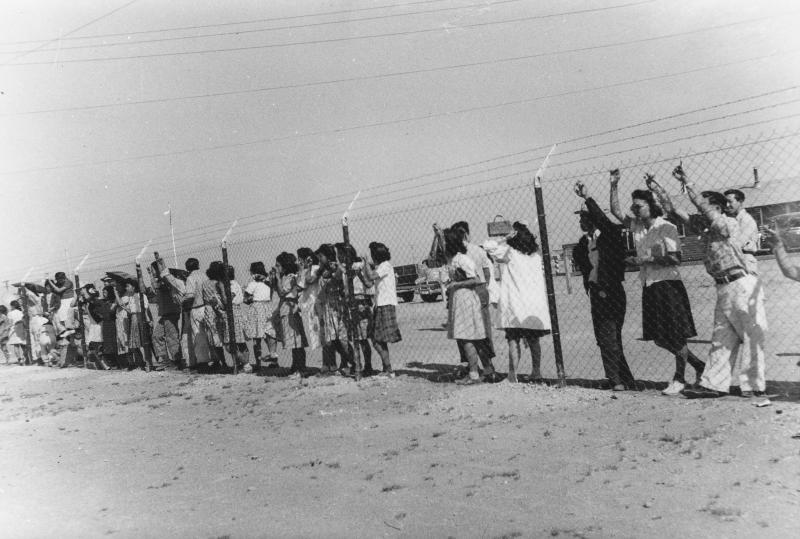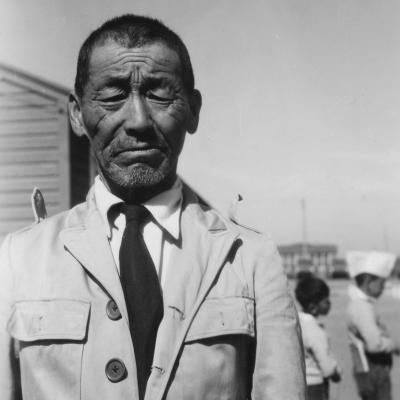Life in the Camps
Topaz was one of several permanent internment camps dotted throughout the midwest, and like all camps it was a gruesome experience for its inhabitants. Standards for construction quality in these camps were set very low by the U.S. government. Japanese peoples departing from major cities like San Francisco and Sacramento were brought to Utah in ancient train cars that had long since been taken out of service. Little more than cattle carts, they made the already unpleasant journey even more uncomfortable for displaced families.
Once at Topaz, the Japanese were introduced to what would become their new homes from 1942 to 1945. The camp was arranged into several blocks; each block had twelve barracks, a recreation hall, latrines for men and for women, and a mess hall. The barracks were sectioned into six apartments of different sizes to accommodate families of two, four, or more people. The rooms had no partitions, so in order to have a semblance of privacy families took army blankets and hung them from the ceilings. This ingenuity was commonplace throughout Topaz, with ladies taking apart onion sacks to crochet carrying cases, making jewelry from painted shells, and creating shelves from surplus lumber.
Ultimately, however, resources were limited. Each apartment had a pot bellied stove but coal was brought in irregularly, and even when it was brought in the army would simply dump it in the center of camp and leave the internees to make a mad scramble for what they could carry. Besides making day to day life difficult, this was largely dehumanizing for the Japanese and it spoke to the effects that internment had on the population.
Explore more oral histories and the Japanese American experience in the Interviews with Japanese Americans in Utah collection
Interviews with Japanese in Utah: Sachi Seko, p 5
You know why I mostly say he came here? It wasn't only to seek their fortunes, it was to escape the draft from Japan. And this is one of the things that my grandfather could not tolerate about these immigrants. They would have all thse festive affairs. You know, weddings,· and after the funerals, dinners -And they'd all be singing these very nationalistic songs, praising the emperor:


